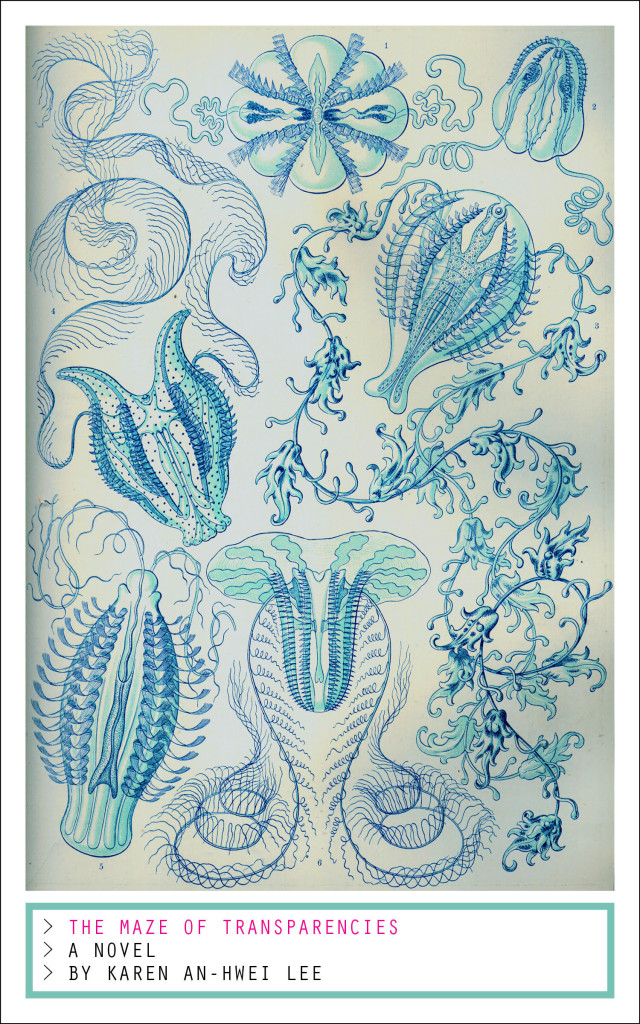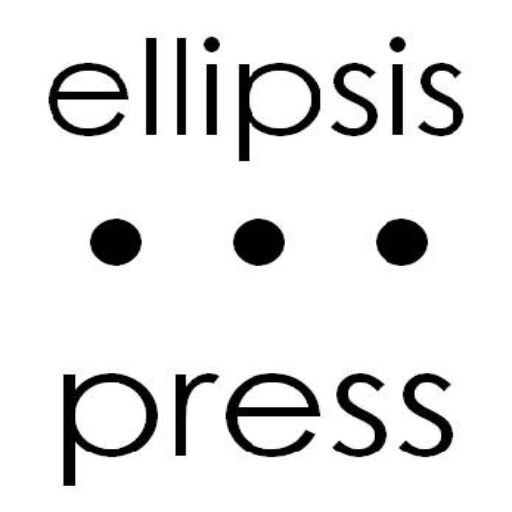
The Maze of Transparencies by Karen An-hwei Lee
ISBN 978-1-940400-09-9 | Fiction | $14.00 | pub date: June 25, 2019
Winner of the 2019 Big Other award for Fiction!
One of Entropy Magazine’s Best Fiction books of 2019!
One of Dennis Cooper’s favorites of 2019!
Order from Bookshop and your local independent bookstore.
We are unable to process orders here at this time… technicians are working on the problem.*
Review on Goodreads.
Dear reader, I am not dumping my shattered cloudbits on your eardrums for your pity or counsel, sympathy, or advice. Nor do I offer this tale as an act of retribution in the wake of a global collapse, wherein I gallivant around the biosphere promoting a kiss-and-tell memoir. I technically do not exist. I’ve virtually kissed nothing except bits and bytes. In other words, I rely on laser-printed carbon symbols for any trace of a physical existence. Please forgive these lexical excesses and disfluent modes of delivery. In a checksum for validation, with apologies, I dwell in em-dashes, amid scattered alphanumeric figures and ellipses…
In the near future, when an epidemic of cyberfatigue has triggered a technocracy collapse, an orphaned cloud narrates the quest of Yang as he visits each of the harbingers of happiness.
Praise for The Maze of Transparencies
[R]eads like a theory-infused dream from the Coleridgean pleasure dome. Language-drunk and story-simple, this novella is science fiction in the same way Finnegans Wake is sometimes called folklore… Lee’s story is not about the journey; rather, it’s about the vast intricacy of human denotation, connotation, and dependency that language can depict but never capture. Lee releases the reader from the tyranny of narrative cause and effect, with exhilarating results.”
—STARRED REVIEW, Publishers Weekly
Every apocalypse sings its own song, tells its own story – tellings, or re-tellings, of where we are now, whoever we are at any given moment, and how we got here, too, whatever we are at any given moment.
But who can answer the impossible but potentially life-saving question of what an end will look like before it happens, especially when ends—pasts, presents and futures all rolled up into single, decisive moments—are so complicated?
In her astonishing new novel, Karen An-hwei Lee suggests that maybe the answer to the problem of recognizing an end, if that end is not desirable, lies not in looking… but rather in listening to what the present is saying. In a time when everything is connected, perhaps we need to pay attention to what has connected to us, to what has already begun to supersede us, to what is already telling our story, our end, and thus its own beginning.
Karen An-hwei Lee is brilliant. A writer who can hear the present, who is generous enough to give the present a forum to speak, and a writer who knows that a narrative, a narrator, is never what it seems.
—Harold Abramowitz, author of A House on a Hill, Not Blessed, and Dear Dearly Departed
A former data cloud, now “a nebulous puff in a starry noosphere of human consciousness,” narrates the story of its creator, Yang, a former tech elite, now “millenial gardener” after a digital shutdown collapses the technocracy and discorporates vast clouds of data, as he undertakes a journey to find, among the ruins of the mezzopolis, the seven harbingers of happiness. But this cloud is also a poet, which is to say, Lee’s writing dazzlingly illuminates the inner life of data, the “maze of transparencies” in which we are enmeshed. The cloud asks, “…does a cloudfree formula for happiness exist?” This is a polyglot guide to existential collapse, a multivalent antiserum for the promises of technological progress. We need this book.
—Evelyn Hampton, author of Discomfort, The Aleatory Abyss, and Famous Children and Famished Adults
Karen Lee writes the present and the ever-impinging future through the lenses of several jargons. The language is dense, the future, impossible, and this book a solid scream. See you there!
—Alan Davies author of A AN AV ES, ACTIVE 24 HOURS, Candor, RAW WAR, and ODES & fragments.
Karen An–Hwei Lee’s The Maze of Transparencies perfectly frames how digital technologies influence not just our daily living, but also the entire political system we inhabit, projecting it into the future and perhaps generating its fall.
—Fe Orellana in Queen Mob’s Teahouse
Lee playfully folds biographical details, intertextuality, leitmotifs and an endless number of puns together into an airy historiographic metafiction. The result of Lee’s imaginative, citified writing is an audacious celebration of language, a polyglot short story full of postmodern literary techniques. Sonata in K is a novella for those who love language above all else and enjoy the challenge of de-allegorization.
—Midori Friedbauer in The International Examiner
Praise for Karen An-hwei Lee
Lee resides intimately in the space between languages, geographies, and temporalities… The verbal and the sensual are fused under her supple pen, and you will marvel at her capacity to animate words, releasing them from habit and predictability into buoyancy.
—Mary Caponegro
I heed Lee’s voice for the alarm it sounds in advance of a catastrophe as real and troubling as the San Andreas Fault and hail it for the beauty…
—Norman Lock
Ms. Lee, a poet, encapsulates [Kafka’s] reflections with exquisite delicacy and grace.
—Wall Street Journal
Lee enchants in Sonata in K…
—John Madera
The prose possesses an elevated, intellectual quality to it that never wanders too far into abstraction and always dazzles.
—Angel City Review
L.A. in Sonata in K is sound and light caught in Lee’s giddily unstable language.
—Your Impossible Voice
Perhaps it takes a poet to dramatize the stark bargain Kafka struck in order to live on through literature, line by line and image by image…
—American Book Review
Lee’s strange and gemological arrangements are the measure of her gift…
—Heather McHugh
[S]imply exquisite…
—Rigoberto González
Karen An-hwei Lee is the author of the novel Sonata in K (Ellipsis Press) and the poetry books Phyla of Joy (Tupelo 2012), Ardor (Tupelo 2008) and In Medias Res (Sarabande 2004), winner of the Norma Farber First Book Award. Lee also wrote two chapbooks, God’s One Hundred Promises (Swan Scythe 2002) and What the Sea Earns for a Living (Quaci Press 2014). A book of literary criticism, Anglophone Literatures in the Asian Diaspora: Literary Transnationalism and Translingual Migrations (Cambria 2013), was selected for the Cambria Sinophone World Series. She currently lives in San Diego. Follow her @karenanhweilee.
